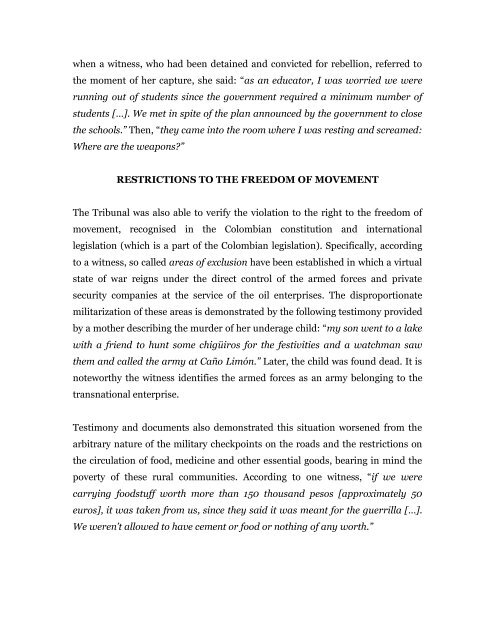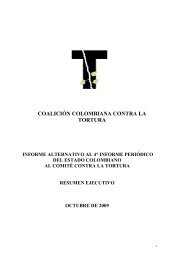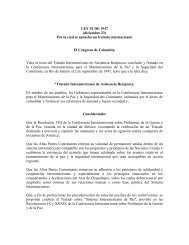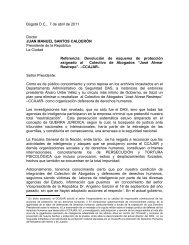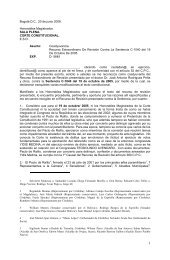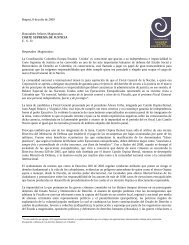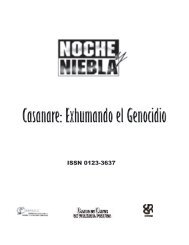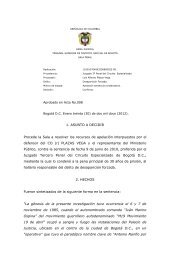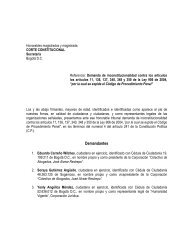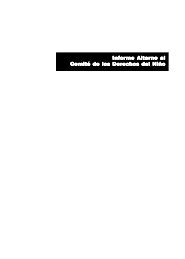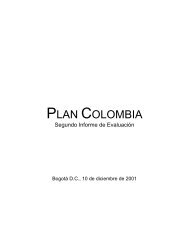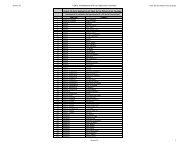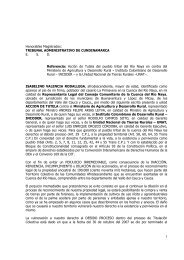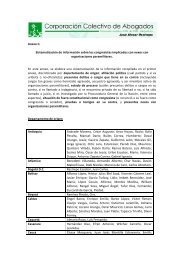PERMANENT PEOPLES' TRIBUNAL, SESSION ON COLOMBIA ...
PERMANENT PEOPLES' TRIBUNAL, SESSION ON COLOMBIA ...
PERMANENT PEOPLES' TRIBUNAL, SESSION ON COLOMBIA ...
Create successful ePaper yourself
Turn your PDF publications into a flip-book with our unique Google optimized e-Paper software.
when a witness, who had been detained and convicted for rebellion, referred to<br />
the moment of her capture, she said: “as an educator, I was worried we were<br />
running out of students since the government required a minimum number of<br />
students […]. We met in spite of the plan announced by the government to close<br />
the schools.” Then, “they came into the room where I was resting and screamed:<br />
Where are the weapons”<br />
RESTRICTI<strong>ON</strong>S TO THE FREEDOM OF MOVEMENT<br />
The Tribunal was also able to verify the violation to the right to the freedom of<br />
movement, recognised in the Colombian constitution and international<br />
legislation (which is a part of the Colombian legislation). Specifically, according<br />
to a witness, so called areas of exclusion have been established in which a virtual<br />
state of war reigns under the direct control of the armed forces and private<br />
security companies at the service of the oil enterprises. The disproportionate<br />
militarization of these areas is demonstrated by the following testimony provided<br />
by a mother describing the murder of her underage child: “my son went to a lake<br />
with a friend to hunt some chigüiros for the festivities and a watchman saw<br />
them and called the army at Caño Limón.” Later, the child was found dead. It is<br />
noteworthy the witness identifies the armed forces as an army belonging to the<br />
transnational enterprise.<br />
Testimony and documents also demonstrated this situation worsened from the<br />
arbitrary nature of the military checkpoints on the roads and the restrictions on<br />
the circulation of food, medicine and other essential goods, bearing in mind the<br />
poverty of these rural communities. According to one witness, “if we were<br />
carrying foodstuff worth more than 150 thousand pesos [approximately 50<br />
euros], it was taken from us, since they said it was meant for the guerrilla […].<br />
We weren’t allowed to have cement or food or nothing of any worth.”


